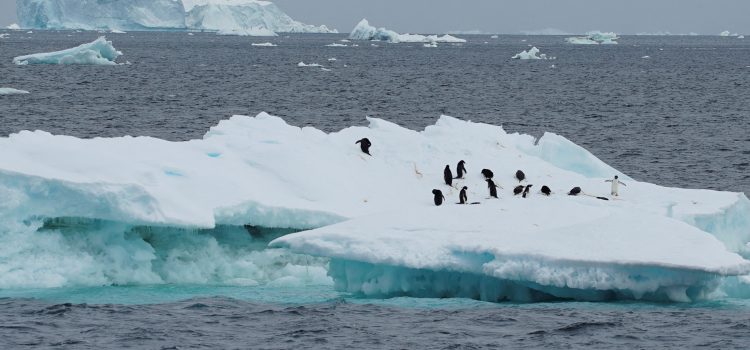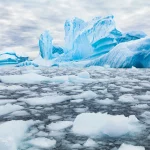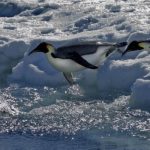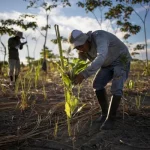
Emperor Penguins and the Melting Ice Crisis
In the ever-changing narrative of climate change, the tales of the animal kingdom often serve as poignant reminders of the challenges our planet faces. Today, we delve into the plight of the Emperor penguins, those magnificent creatures of the Antarctic, who faced a devastating crisis last year due to melting ice. Join us on this exploration as we hear from renowned climate scientist Robert M. DeConto, an expert with unparalleled insight into the impact of climate change on these majestic birds.
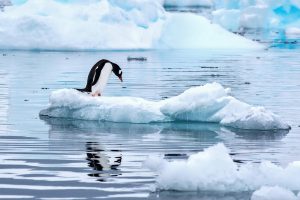
Meet the Expert: Robert M. DeConto
Before we venture into the heart of the matter, let’s get acquainted with our knowledge source, Robert M. DeConto. Dr. DeConto is a distinguished climate scientist with decades of experience. His groundbreaking research on ice sheets and their response to global warming has earned him international recognition. As a professor at the University of Massachusetts Amherst, he is at the forefront of climate science, making him a trusted authority on the topic we are about to explore.

Emperor Penguins in Peril
Emperor penguins, the iconic birds of the Antarctic, faced a grave crisis last year. Let’s uncover the extent of their struggle and the alarming losses they endured.
Melting Ice – A Deadly Threat
Dr. DeConto explains how the melting ice in the Antarctic directly impacts the penguins’ breeding grounds, leading to catastrophic consequences.
Breeding Grounds Under Threat
Imagine a world where your home is in constant flux, where the very ground beneath your feet is shifting. For Emperor penguins, this is not a distant nightmare but an everyday reality. These remarkable creatures rely on the Antarctic sea ice as their breeding grounds. However, this icy sanctuary is rapidly disappearing due to the effects of climate change.
Dr. Robert M. DeConto, a leading climate scientist, emphasizes that the loss of this critical habitat threatens not only the Emperor penguins but the entire ecosystem they are a part of. “The ice is not just a backdrop; it’s a lifeline for these penguins,” he says. The sea ice provides a stable platform for breeding and raising their chicks, protecting them from predators. Without it, their future hangs in the balance.

Heartbreaking Losses
The numbers are staggering and heart-wrenching. Last year, Emperor penguins lost thousands of chicks to the relentless march of melting ice. These chicks, unable to survive in the harsh conditions without the protective ice, perished in large numbers. It’s a stark reminder of the urgent need for action to mitigate the impact of climate change on these vulnerable creatures.
As Dr. DeConto points out, “The loss of thousands of chicks is not just a statistic; it’s a tragedy that reverberates through the ecosystem.” Emperor penguins are not isolated; they are part of a delicate web of life in the Antarctic. Their presence supports a range of species, from krill to seals and whales. When penguin populations suffer, it sends shockwaves through the entire ecosystem, disrupting the delicate balance that has evolved over millennia.
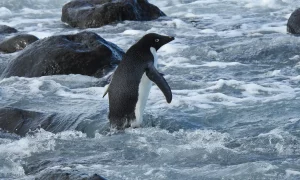
Climate Change Solutions
Amidst the dire circumstances, there is hope. Dr. DeConto shares insights into the strategies employed to mitigate the penguins’ plight, offering a ray of hope in the face of adversity. These strategies are not just about saving the penguins; they are about preserving the integrity of our planet’s ecosystems.
- Reducing Carbon Emissions: The most fundamental step in combating climate change is reducing carbon emissions. Dr. DeConto underscores the importance of transitioning to clean energy sources, reducing our reliance on fossil fuels, and adopting sustainable practices. This not only benefits Emperor penguins but all life on Earth.
- Monitoring and Predicting Ice Loss: Advanced technologies and satellite monitoring enable scientists to track ice loss in real-time. This data is crucial for understanding the changing landscape of the Antarctic and for making informed decisions regarding conservation efforts.
- Restoring Penguin Habitats: Conservation organizations are actively involved in restoring penguin habitats. This includes initiatives to protect and preserve existing breeding grounds and reforestation efforts to provide alternative locations for Emperor penguins to nest.
- Studying Penguin Behavior: Researchers are closely studying penguin behavior to understand their adaptations and resilience in the face of changing conditions. This knowledge is essential for crafting effective conservation strategies.
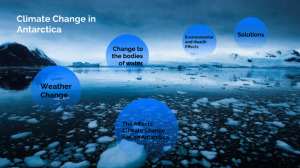
A Human Responsibility
In this section, we explore our role as stewards of the Earth, emphasizing the importance of conservation and collective action.
- Reforestation: Reforestation efforts are not only about planting trees but also about creating sustainable ecosystems that support wildlife. By restoring forests in the vicinity of penguin habitats, we can provide alternative nesting sites and protect their fragile ecosystems.
- Research Initiatives: Supporting research initiatives that focus on penguin behavior and climate change impacts is crucial. Dr. DeConto stresses that understanding these dynamics is essential for informed conservation efforts.
- Global Awareness: Raising global awareness about the plight of Emperor penguins and the broader issue of climate change is paramount. Dr. DeConto believes that a well-informed and concerned global community can drive policy changes and encourage sustainable practices.
Conclusion: A Call to Action
As we conclude our journey through the world of Emperor penguins and the melting ice crisis, it becomes evident that their survival is intrinsically tied to our commitment to combat climate change. Dr. Robert M. DeConto’s expertise has illuminated the challenges these magnificent birds face, but also the hope that arises from concerted efforts to protect their icy habitats.
It’s our shared responsibility to take action, reduce carbon emissions, support conservation initiatives, and advocate for policies that safeguard not only the Emperor penguins but the delicate balance of our planet’s ecosystems. In their story, we find a profound reminder of the interconnectedness of all life on Earth and the urgent need to protect it.








